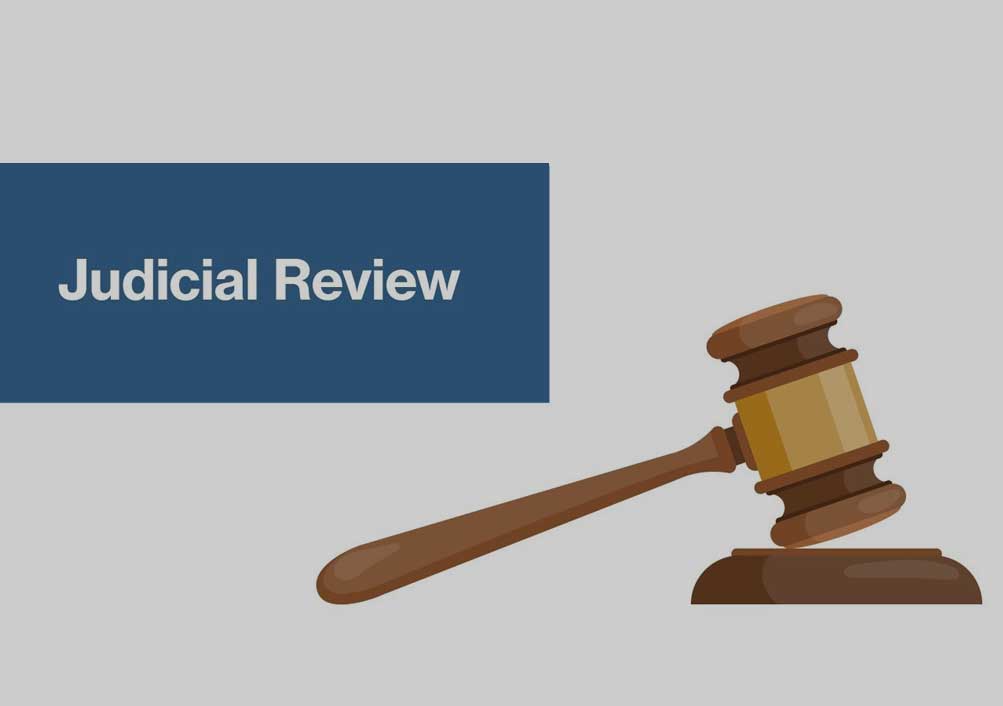Scope of judicial review in foreign funded projects should be minimal & High Courts should be circumspect in exercising discretion while granting stay which may delay execution of such projects: SC

Read Judgment: National High Speed Rail Corporation Limited V. Montecarlo Limited & Anr.
Pankaj Bajpai
New Delhi, February 4, 2022: While dealing with rejection of bid by NHSRCL (State Corporation) under the contractual obligation of the foreign funded project for Bullet Train Project, the Supreme Court has opined that in absence of any allegation of mala fides/ arbitrariness and/or favouritism, conscious decision taken by author of tender document to reject non-responsive bid submitted by the bidder cannot be interfered by the High Court.
A Division Bench of Justice M.R Shah and Justice A.S Bopanna observed that when a conscious decision has been taken by the JICC/JICA (Foreign funding company) on the Bid submitted by Montecarlo (Respondent – bidder) being non-responsive/non-compliant to the technical requirements of the Bidding Documents, unless there are specific allegations of mala fides and/or favouritism, the same could not have been the subject matter of scrutiny by the High Court in exercise of the powers under Article 226 of the Constitution of India.
The observation came pursuant to an appeal challenging the judgment, whereby the High Court has quashed the communications dated Apr 27, 2021 and Apr 28, 2021 and the notification dated Apr 28, 2021 by which Montecarlo (Respondent) was informed that its technical Bid has been rejected on the ground that the same is non-responsive and consequently has directed National High Speed Rail Corporation (Appellant – NHSRCL) to proceed in accordance with law qua the tender process by further examining the Bid of the Respondent.
After considering the submissions, the Top Court found that the decision to hold that the Bid was not responsive, was of Japan International Consultants Consortium (JICC), and under the contractual mechanism, the appellant had no authority to deviate from the evaluation done by JICC.
Any deviation by the appellant or Government of India may not be acceptable by Japan International Cooperation Agency (JICA), who has agreed to fund a huge sum of approximately Rs. 1 lakh crores for the Bullet Train Project, which was funded on the terms and conditions agreed between the JICA and the Republic of India / the President of India, added the Court.
Speaking for the Bench, Justice Shah observed that it is ultimately for the JICC/JICA to take a decision whether the Bid submitted by a particular Bidder is responsive or not and/or compliant or not to the technical requirements of the Bidding Documents.
Therefore, the Bidding Procedure adopted is transparent, fair and does not suffer from any arbitrariness, as there are no allegations of mala fides and/or favouritism either against the appellant or against JICC and/or JICA, added the Bench.
“In the present case, Japan being friendly sovereign country – a developed nation has agreed to fund a huge amount for a National Project in favour of another friendly State – developing nation – in the present case, the Republic of India. Such a huge sum/amount is funded by the developed nation to implement the Project meant for development of the developing nation – the Republic of India. The contracts are entered into and the huge sum is funded on the basis of non-negotiated terms and conditions and therefore, the foreign developed nation, who has agreed to invest/fund such a huge amount is always justified in insisting for their own terms and conditions on which such a huge amount is funded”, observed the Top Court.
Therefore, Justice Shah highlighted that when the terms and conditions of the tender document were settled by the JICA, it is ultimately for the JICC/JICA to take a decision whether a Bid submitted by a particular Bidder is non-responsive and/or noncompliant to the technical requirements of the Bidding Documents.
The scope of judicial review in such foreign funded contracts/projects would be restricted and minimal, and in such foreign funded contracts, the only ground for judicial review ought to be on a limited aspect, i.e., the action of the executing authority does not suffer from favouritism or nepotism and based on the grounds which have been concealed from the foreign financing authority, if disclosed, would have persuaded the financing authority to cancel the contract, added the Bench.
Therefore, the Apex Court quashed the judgment passed by the High Court.
Sign up for our weekly newsletter to stay up to date on our product, events featured blog, special offer and all of the exciting things that take place here at Legitquest.




Add a Comment